Opportunities
Pathways to Prevention
New funding opportunity for Community-Based Child Abuse Prevention
Prevent Child Abuse CT, a program of the Connecticut Children’s Alliance, is issuing a request for proposals intended to support diverse community organizations and/or groups that support work leading to child maltreatment prevention.
Why
Child abuse and neglect are serious public health problems that can have long- term impacts on health and wellbeing. At Prevent Child Abuse CT, our vision is a world where no child is ever abused or neglected. Child abuse and neglect are preventable, and everyone benefits when children and their families have safe, stable, nurturing relationships and environments. Developing practical pathways to support those relationships and environments is a critical piece of a robust prevention strategy
What
Prevent Child Abuse Connecticut (PCACT) is pleased to announce a call for proposals for grants to support child maltreatment prevention innovation in Connecticut. These grants are intended to support community-based projects underway, pilot projects, and creative strategies contributing to the prevention of child abuse and neglect for children from birth to age 18
Who
Applicants must be 501(c)(3) organizations within Connecticut. Unincorporated organizations or coalitions must identify a 501(c)(3) organization that has agreed to function as its fiscal agent. Applicants must demonstrate a history of working on child abuse and neglect prevention
Request for Proposals (RFP) Prevention Innovation Grants
Project Year: Summer 2024
Prevent Child Abuse Connecticut (PCACT) is pleased to announce a call for proposals for a second round of grants to support child maltreatment prevention innovation in Connecticut. These grants are intended to support projects underway, pilot projects, and creative strategies contributing to the prevention of child abuse and neglect. If the funding will be used to support an initiative already under way, you must provide a clear description of how the money will be used for a specific aspect of the project. Priority will be given to projects that:
- Have a research or evaluation component embedded in the project
- Focus on an innovative strategy that can be replicated throughout the state
- Involve collaboration with one or more partners
- Reflect the lived experience of children and families, including addressing health disparities
Some example topic areas include, but are not limited to, the following:
- Initiatives to address the impacts of COVID-19 on healthy childhoods
- Prevention strategies that support caregiver networks (parents, grandparents, babysitters, etc.)
- Parent leadership development
- Childhood mental health and suicide prevention
- Child maltreatment screening tools
- Community violence
Eligibility
Applications must be 501(c)(3) organizations within Connecticut. Unincorporated organizations or coalitions must identify a 501(c)(3) organization that has agreed to function as its fiscal agent. Applicants must demonstrate a history of working on child abuse and neglect prevention

Proposal
All proposals must be written in 12pt font Times New Roman and include pages numbers. The sections listed below are required.
- Brief description of the project (3 sentences or less)
- Development and Program Sustainability (recommended 500 words or less)
- Organization name, address and contact information
- History of development including description of the agency
- Demonstration of need (recommended 500 words or less)
- Provide a justification for your approach. You may use citations either from local data sources or scholarly publications to demonstrate the need for your work. Citations do not count towards the 500-word recommended total.
- Scope of project including timeline (recommended 1,000 words or less)
- Clearly articulate the aims of your work. You may either narrate this section or place in table format. Make sure to discuss key project activities, deliverables, equity/disparity, community partnerships, and personnel.
- Plan for research and/or evaluation of project (recommended 500 words or less)
- Describe the plan for evaluating your efforts. Complex research designs are not necessary, but priority will be given to those applicants who embed a research or evaluation component into their work. If available, provide a logic model and/or theory of change as a separate document
- If a research component is included, please describe the process for Institutional Review Board (IRB) approval if needed.
- Project budget (recommended 500 words or less)
- Provide a budget narrative clearly describing how the funds will be used.
- Examples of ineligible expenses include, but are not limited to: creation of new personnel, capital expenditures (i.e. mortgage, purchasing a phone system, major building improvements/renovations), purchase of equipment over $2,500, legislative/lobbying activities, fundraising expenses, food for meetings.

Applicant Questions

Applicants may submit any questions to admin@ctchildrensalliance.org. All answered questions will be posted on the CT Children’s Alliance website.

